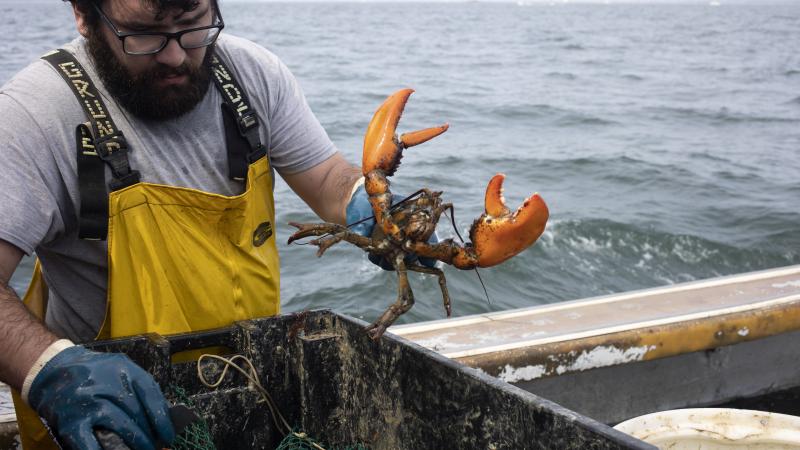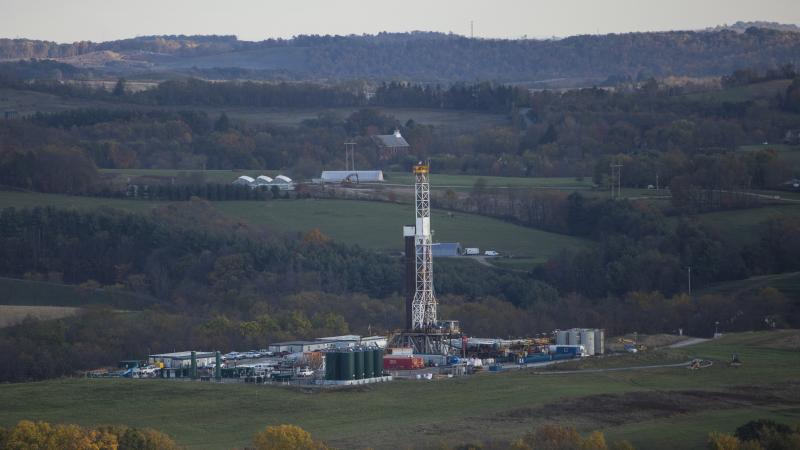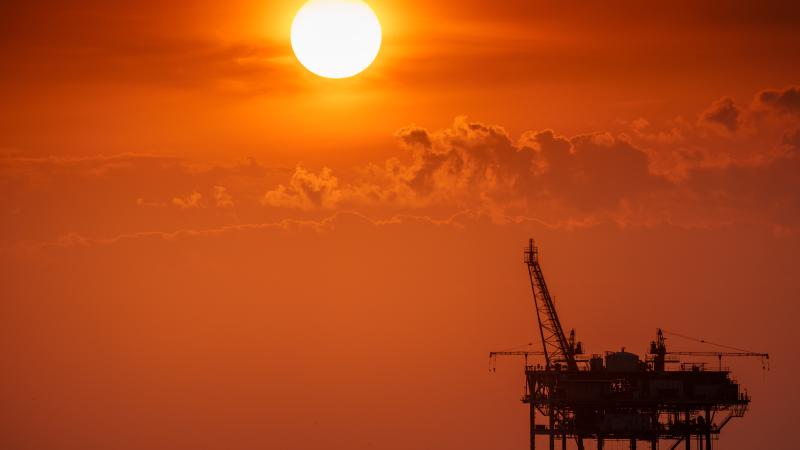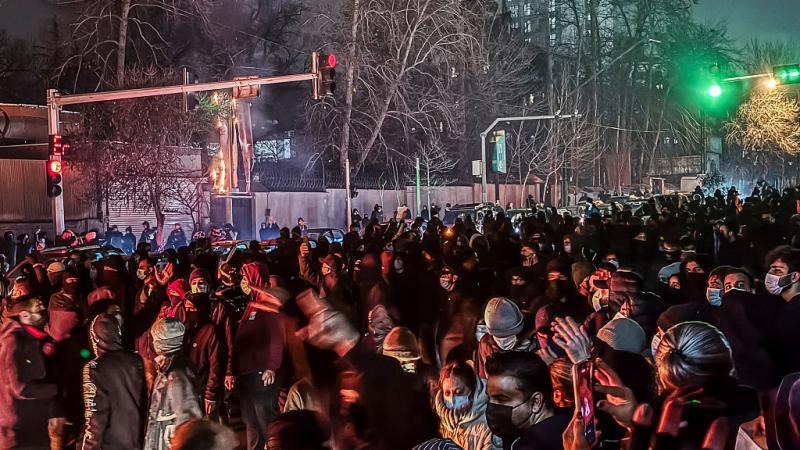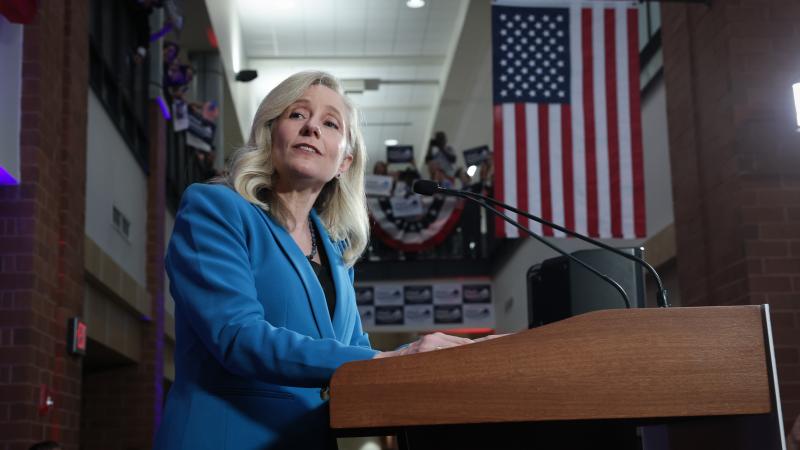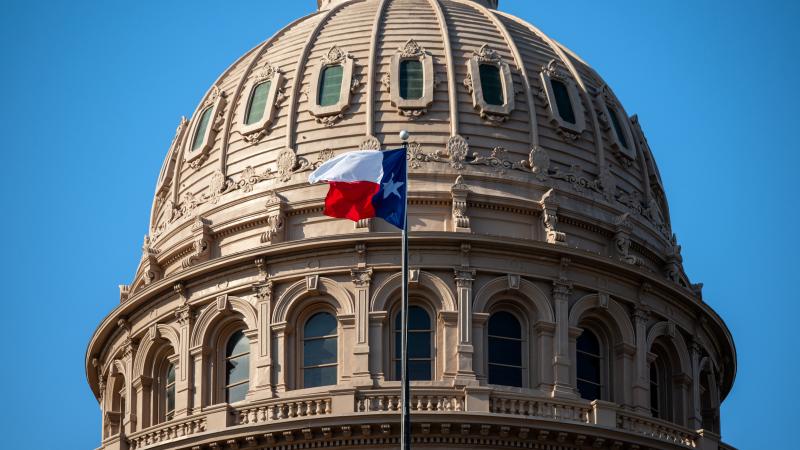Alaska Natives say the Biden admin ignored them, but Trump cabinet members hold town hall there
Alaskan Natives on the North Slope say they had to beg Biden's Interior Secretary Deb Haaland for a meeting, but three Trump administration cabinet members traveled this week to the remote village of Utqiagvik as part of a tour of Alaska.
Utqiagvik, Alaska, sits on the North Slope of Alaska, the northernmost community in the U.S. The town has less than 5,000 residents and can only be accessed by air or, in the summer, by sea.
Despite its remoteness, this week, Interior Secretary Doug Burgum, Energy Secretary Chris Wright and EPA administrator Lee Zeldin made the trek — 2,000 miles from Washington, D.C., as the crow flies — to visit the area and talk to the town’s residents, more than half of which are Alaska Natives, about unleashing Alaskan oil and gas.
While the Biden administration professed a commitment to Native American sovereignty and inclusion, when it came to oil and gas production, Alaskan Natives who advocated for their interests in the industry say their concerns were ignored.
The Voice of the Arctic Iñupiat (VOICE) represents 21 members in eight Alaskan Native communities spread out across 95,000 square miles of northern Alaska. For years they had requested an audience with former Interior Secretary Deb Haaland. When she finally granted them the meeting last summer, representatives of VOICE had to fly to her.
“Quite the contrast from the last administration to this one. Lots of words on paper with the previous administration on how they wanted to consult with indigenous groups and people who were going to be affected the most by their decisions and national strategies. Yet very little action. We were finding things out via the news,” Nagruk Harcharek, president of VOICE, told Just the News.
A seat at the table, higher quality of life
The Biden administration appeared to take actions impacting Alaskan Natives, such as blocking 13 million acres of public land from oil and gas drilling in the National Petroleum Reserve in Alaska (NPR-A). The indigenous people were not consulted or contacted by Haaland, and the new rule, when they learned of it, had no support from the members of VOICE.
On Sunday evening, the three cabinet members held a town hall meeting, where Burgum announced that the Department of Interior was proposing to rescind the Biden-era restrictions on oil and gas development in the NPR-A.
“We’re looking forward to consulting on that and making sure our priorities are included in subsequent rules,” Harcharek said.
Besides the town hall meeting, Burgum, Zeldin and Wright also spent an hour and a half touring the area, looking at schools and civic buildings. Harcharek said the North Slope officials showed them a cellar where the Alaska Natives store their traditional foods, and Asisaun Toovak, mayor of Utqiaġvik, explained some aspects of whaling.
The North Slope officials also showed them the improvements in infrastructure and services the town has seen in the past 40 years as a result of the tax revenues from oil and gas development, such as the hospital, water and sewer systems, schools, law enforcement and fire protection.
These improvements have had a dramatic impact on the quality of life on the North Slope. In 1980, the average life expectancy of a person living in the North Slope Borough was just 65, which is about the same as Sudan and Iraq today. Today, the average lifespan in the North Slope is about 77 years.
“It's really enhanced our way of life up here, and allows people to live in the communities where they're from, where their homes are. And we want to keep it that way,” Harcharek said.
‘Drive-by lip service’
For the Alaskan Natives of the North Slope, it was a much more difficult process to get the Biden administration to listen to their concerns about restrictions on oil and gas development. On multiple occasions, Iñupiat leaders visited Washington, D.C. to try to talk with Biden administration officials in the federal government. They also pressed Haaland for a meeting, but she would either decline or ignore the requests.
On June 5, 2024, VOICE was notified that Haaland might meet with them the following week. Traveling to Washington, D.C. from the North Slope is a challenge, and Haaland didn’t confirm the meeting until June 6, giving the Alaskans one week to organize the trip for a dozen people.
“Under Biden, Secretary Haaland’s interaction was really no more than a drive-by lip service. As NSB [North Slope Borough] Mayor [Josiah Aullaqsruaq] Patkotak pointed out at the Governor’s Energy Conference in Anchorage earlier today, the Biden administration only talked at the Inupiat people instead of listening and understanding their concerns and positions,” Brett Huber, Alaska representative for Power the Future, told Just the News.
Huber said the visiting cabinet members from the Trump administration provided a “stark” difference to that of the previous administration.
“The energy cabinet listened, shared and followed through for the people of Alaska’s North, where the Biden officials set aside their interests and served instead the interests of their friends in the environmental lobby,” Huber said.
Collaborative relationship
The Trump administration also discussed with Alaska’s elected officials a proposed 807-mile long natural gas pipeline from the North Slope to a liquefaction facility on the coast of the Cook Inlet. The pipeline would provide a gas supply for Alaskans and open up liquefied natural gas export opportunities to Asian markets.
After years of restrictive policies under the Biden administration, Harcharek said the future is looking better for Alaska and the North Slope Alaskan Natives.
“It was a really awesome opportunity to hear directly from them, and we're hoping that it is the start of a more collaborative relationship with the federal government,” Harcharek said.
The Facts Inside Our Reporter's Notebook
Links
- half of which are Alaska Natives
- commitment to Native American sovereignty and inclusion
- Voice of the Arctic Iñupiat
- requested an audience with former Interior Secretary Deb Haaland
- blocking 13 million acres of public land from oil and gas drilling
- held a town hall meeting
- proposing to rescind the Biden-era restrictions
- average life expectancy
- average lifespan in the North Slope
- either decline or ignore the requests
- Governorâs Energy Conference in Anchorage
- Power the Future
- 807-mile long natural gas pipeline
